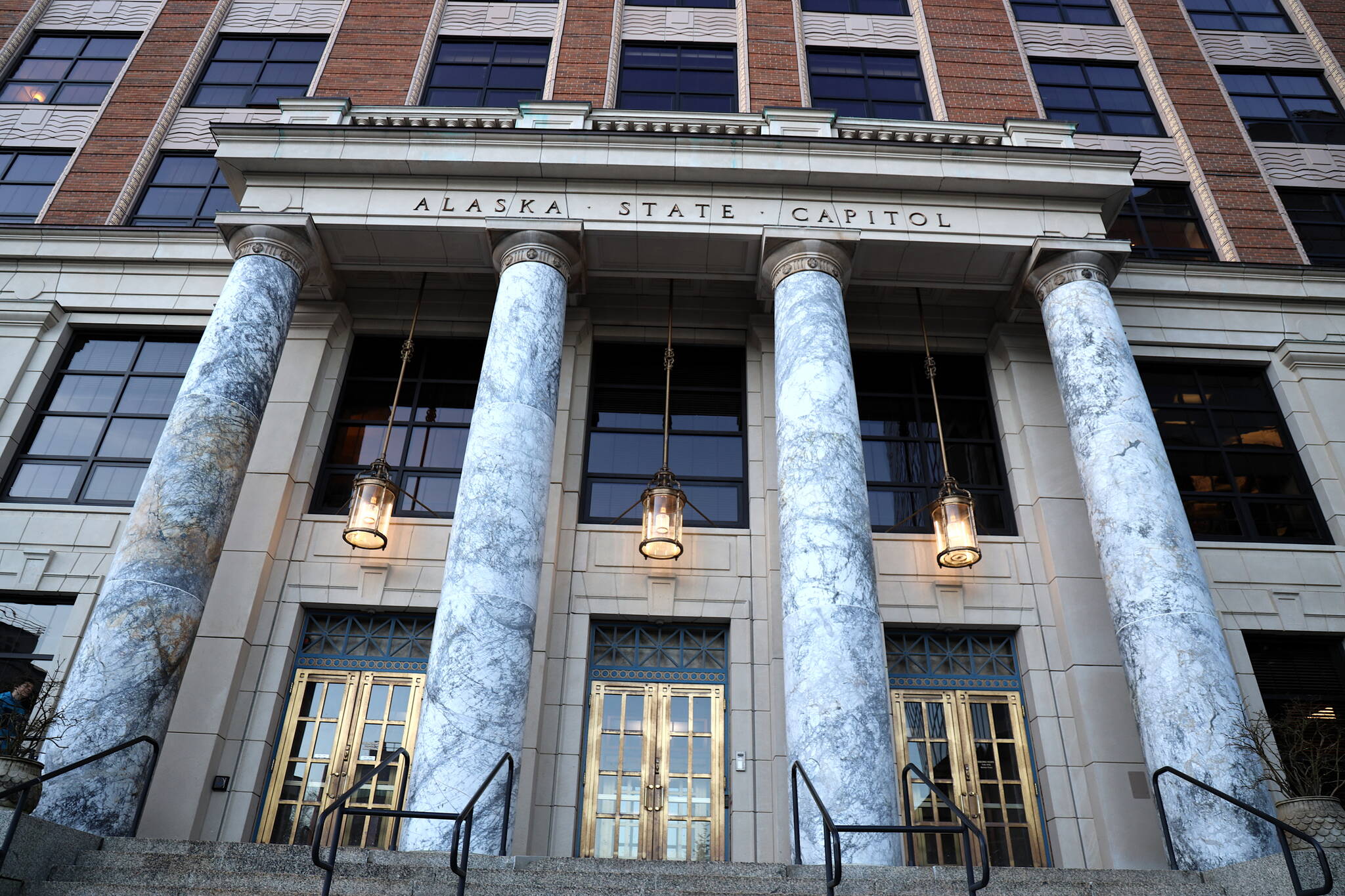By Ashlyn O’Hara
Peninsula Clarion
School board members reiterated on Monday their push for an increase to the amount of money the state gives districts per student and checked in on other state issues.
Members of Kenai Peninsula Borough School District’s Information Committee heard updates on school funding, “parental rights” legislation and a defined benefits bill during their meeting. The group includes board members Penny Vadla, Tim Daugharty, Zen Kelly and Patti Truesdell.
School funding
KPBSD Superintendent Clayton Holland urged Monday for people to continue advocating for an increase to the base student allocation. If no additional funding for schools is made available by the Alaska Legislature, he said, KPBSD will face “the full $13 million” deficit that the district had to reconcile this budget cycle.
KPBSD Finance Director Elizabeth Hayes reported to the board earlier this year that the district was facing a $13.1 million budget deficit for fiscal year 2024, which starts on July 1, 2023, and ends on June 30, 2024. To remedy that deficit, the district plans to use about $6.2 million in leftover COVID-19 relief funds, $820,000 in savings and more than $3.6 million in budget cuts.
“I encourage everyone to remain optimistic and remain advocates for this so, basically, that we’re not kicking it down the road again, which is what’s been happening for years,” Holland said. “It’s time to take care of this.”
There are two bills being considered by the state lawmakers that would increase the amount of money school districts receive per student, called the base student allocation.
S.B. 52, sponsored by the Senate Education Committee, originally sought to increase the BSA by $1,000 per student. The Senate committee substitute, which was moved out of the Senate Education Committee earlier this month, would increase the amount by $1,000 initially, then increase it another $348 in fiscal year 2025, and then adjust it for inflation the year after that.
A separate bill, H.B. 65, originally sought to increase the base student allocation by $1,250. The committee substitute of that bill would instead increase the amount by $680 for the upcoming fiscal year, and by another $120 for the year after.
As reported by the Alaska Beacon, the Alaska Senate Finance Committee last week was presented with a budget containing $175 million in extra funding for schools. The Alaska House of Representatives also approved in its own version of the state budget about $175 million in extra school funding. An increase of $175 million is enough to bump per-student funding by $680.
Board Vice President Zen Kelly urged those interested in testifying on school funding that they push for an increase to the base student allocation amount, rather than a one-time increase.
“We’re going to be in the same boat next year of fighting after one-time money kind of saves the day again,” Kelly said. “I think there is as much will as I’ve ever seen in the Legislature to put something into the BSA that we can count on as we start developing our budget next October for fiscal year (2025).”
‘Parental rights’
Additional concern was raised by Holland about the newly amended House Bill 105, which Gov. Mike Dunleavy introduced earlier this year as a “parental rights” bill.
As originally proposed, the bill would have required parents to opt their children into courses or programs that talk about sexual education or gender identity and require written permission from a student’s parent if they wish to use a different name or pronoun. The bill would have also required schools to separate student locker rooms and bathrooms by biological sex or provide single occupant facilities.
The amended version of the bill, which advanced out of the House Education Committee last week, requires parental permission for students to participate in any school activity, class or program, regardless of the topic. Parents would also be required to provide to their student’s school district each semester a list of all the names and pronouns that can be used to address their student.
Holland on Monday said requiring parents to opt students into every lesson is not realistic.
“I think the pragmatics of doing that — it’s not realistic and to me shows a clear lack of understanding of how schools work,” he said.
The amended version of the bill also removes references to the separation of locker and restrooms by biological sex as among the ways school districts may be required to address student safety and privacy in those areas. Schools would also be newly eligible for “parental involvement initiatives funding” in the same way they’re eligible for special needs and career and technical education funding.
Defined benefits
Holland also expressed skepticism that Senate Bill 88 would make it across the finish line this year. That bill would return Alaska’s teachers and public employees to a defined benefit retirement system, rather than a 401(k)-style system that employees hired after 2006 have.
Under the legislation nearly three in four KPBSD staff would be eligible to move to a defined benefit retirement plan, which some say would help address staff recruitment and retention strategies by giving staff retirement security.
“My gut’s telling me this will be one they’ll start the year off with next year,” Holland said.
More information about KPBSD’s budget process for the upcoming fiscal year can be found on KPBSD’s finance webpage at kpbsd.org.
Reach reporter Ashlyn O’Hara at ashlyn.ohara@peninsulaclarion.com.


